The Salt Path: The 85-Week Sunday Times Bestseller from the Million-Copy Bestselling Author (Raynor Winn, 1)
£9.60£10.40 (-8%)
Bring nature into your home with the inspiring true story of hope and the healing powers of the natural world, in one of the most talked about books of the decade
FROM THE MILLION-COPY BESTSELLING AUTHOR
‘This is what you need right now to muster hope and resilience . . . a beautiful story and a reminder that humans can endure adversity’ Stylist
‘A beautiful book, it really lives up to the hype . . . an enjoyable, gentle yet moving read’ Pandora Sykes on The High Low
_________
Just days after Raynor learns that Moth, her husband of 32 years, is terminally ill, their home is taken away and they lose their livelihood. With nothing left and little time, they make the brave and impulsive decision to walk the 630 miles of the sea-swept South West Coast Path, from Somerset to Dorset, via Devon and Cornwall.
Carrying only the essentials for survival on their backs, they live wild in the ancient, weathered landscape of cliffs, sea and sky. Yet through every step, every encounter and every test along the way, their walk becomes a remarkable journey.
The Salt Path is an honest and life-affirming true story of coming to terms with grief and the healing power of the natural world. Ultimately, it is a portrayal of home, and how it can be lost, rebuilt and rediscovered in the most unexpected ways.
_________
THE SUNDAY TIMES BESTSELLER, WINNER OF THE ROYAL SOCIETY LITERATURE CHRISTOPHER BLAND PRIZE & SHORTLISTED FOR THE 2018 COSTA BIOGRAPHY AWARD & WAINWRIGHT GOLDEN BEER BOOK PRIZE 2018
GUARDIAN BEST BOOKS OF SUMMER
‘A beautiful, thoughtful, lyrical story of homelessness, human strength and endurance’ Guardian
‘Mesmerising. It is one of the most uplifting, inspiring books that I’ve ever read’ i
‘The most inspirational book of this year’ The Times
‘Luminescent. A literary phenomenon’ Mail on Sunday
Read more
Additional information
| Publisher | Penguin, 1st edition (31 Jan. 2019) |
|---|---|
| Language | English |
| Paperback | 288 pages |
| ISBN-10 | 1405937181 |
| ISBN-13 | 978-1405937184 |
| Dimensions | 12.8 x 2.4 x 19.6 cm |

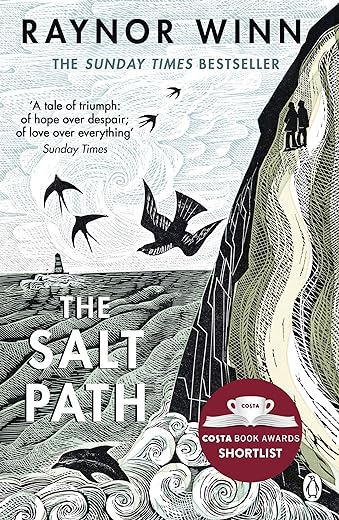
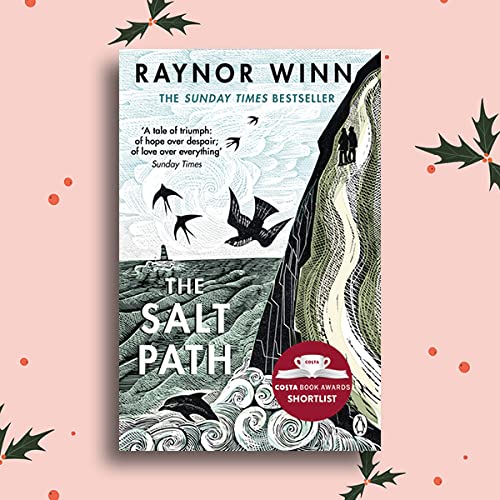
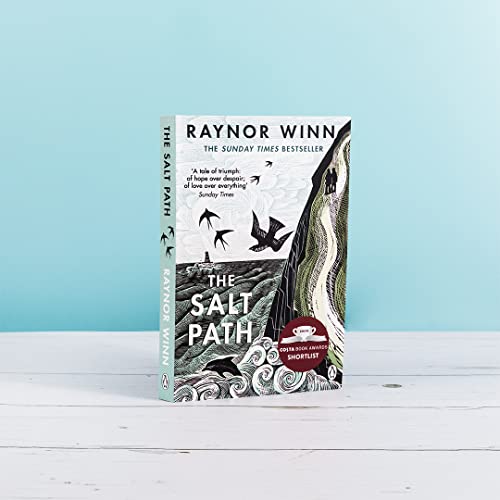
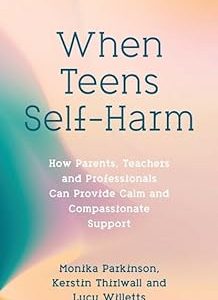




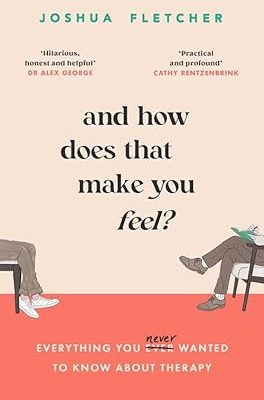

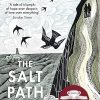
by derekt
Here are my thoughts about the Salt Path. It is one of those books that will stay in my memory, not entirely because I want it to. As I read through it I had very mixed feelings and still remain undecided about its overall quality two weeks after completing it. I am not normally a fan of travel books and seldom read them, but now two have come along in the space of a few months: Travels with a Donkey and this, pretty much different in every respect apart from both being well written, So, on the plus side, the quality of writing is high, the extraordinary mix of real-life characters both good and bad engaging. The book, and the walkers mainly, move forward at a steady pace and I rarely got bored. In its more philosophical passaged it raised interesting and ethically difficult issues about travellers and our reactions to them. (For someone who had to endure two or more weeks of Travellers within a metre of our garden gate and who most certainly did not adhere to the code of leaving nothing behind, it is difficult to avoid being prejudiced on the subject.
Although for much of the time I became fully immersed in the story, there were also times when I became detached and critical, often because my ‘inner historian’ took over. More of that in a moment. I know Somerset, Devon and Cornwall fairly well but almost entirely places that rate only brief mention or none at all and I did not really enjoy the descriptions of the endless capes and bays that run between them. The descriptive writing of the landscape and weather is done well but even the best described views and weather events pall after a while.
During the less engrossing passages I started to wonder just how authentic the story was. The publishers state it is a true story and I am sure that is in general true but what about much of the detail, including conversations. Either the author kept an incredibly detailed diary – and there’s no mention of that – or she is one of the few with perfect recall. I find it hard to believe either of these reasons without any evidence to support them. And there are little snippets of evidence that suggest otherwise. For example in the exceptionally hot first summer, they have to retrace the steps to recover the author’s left-behind fleece. Fleece when the temperature is in the 30s!? and leaving the medication behind- well we all do stupid things but in these circumstances it does seem unlikely. The lucky chances that provide them with a winter roof over their head twice, if in a work of fiction, would be regarded as pushing literary license, Wilkie Collins style, to the limit, but then as they say ‘truth is stranger than fiction’. I find it equally hard to believe that, having engaged in a long legal battle to save their home, they would have failed to take the elementary precaution of entering as evidence before the trial the document that would have won their case. Mind you, any pair named Ray and Moth are probably capable of any madness. It took me a while to work out the their gender, never having come across a female Ray and a moth of any kind of gender.
There is, too, a bit of historical untruth. (You never escape the history lesson in what I write or say but it is relevant!) In the chapter on vagrancy legislation, the statement that the first vagrancy laws are related to the dissolution of the monasteries is untrue, or not as described. By the 1530s there weren’t many monks left and turfing them out would not have made much difference to the vagrancy numbers especially as the more senior and well-connected – as always- quickly found new jobs and comfortable lives. The abbot of Thame Park became the first and only bishop of Thame before becoming Bishop of Oxford. I don’t know exactly what happened to the prioress who was Lord Williams’s sister when he came to close her priory but I doubt that she was left wandering the streets. The act only came into force seven years after the last monastery was closed. There is a slight link between the dissolution and the increased number of vagrants and that is the disappearance of places to stay overnight. Monasteries, friaries and the like were the Premier Inns of the middle ages, simple but decent short-term B and B accommodation for travellers. Some of the former religious houses were re-badged, as at Abingdon where the previous religious foundation was succeeded by a charity called Christ’s Hospital, but for the most part, especially in the more remote corners of the island the loss of cheap or free overnight accommodation meant a big increase in ‘wild campers’.
There is a bit of truth in the brief reference to Enclosure Acts. It was the combination of forced enclosure to provide land for sheep farming, by Williams amongst many others, combined with the ruinous level of taxation to pay for the totally pointless wars waged by Henry VIII that caused thousands to lose their homes and their livelihoods and be forced into vagrancy, and this is where I began to get interested in the ethics of vagrancy. True, there were some pretty unsavoury characters who preferred to be ‘on the road’ but their numbers were greatly swelled as a direct result of discriminatory government legislation and that included forcing local parishes to finance the care for any poor who happened to be there with the result that they were quickly ‘moved on’ to another parish. So pandering on how this situation echoes down the centuries into the recent past gave me a particular interest in one of the books’ central themes. That together with the vast array of colourful, kind or horrible characters who had ‘walk on’ parts (pun intended) and the occasional moments of high hilarity: the apoplectic reaction of the group old men to the sight of a distinctly nubile young female surfer divesting herself, Salome-like, of her many layers of insulating clothing; all this makes it a book to remember if not to cherish.
by Youbetshesgotit
I felt as though I had known them, the oldern ways the places in Cornwall, and Devon. I had been to most of them, the lonelyness. Oh it was the most heartfelt book I have read in a long long time, they way she spoke of her husband when he was at his lowest ebb, it’s such a terrible please to be in when you love someone, and then discover there is no one to turn to when anything like that happens. The sheer determination he felt and the strength they both found to walk the whole of Scotland and three quarters of Devon and Cornwall, the book is and will be one of the greats I feel as the years roll by
by mytton
I enjoyed the descriptive nature
by Cornwallgurl
I kept seeing this title in bookshops – knew it was about the SW Coastal path (an experience I would no more volunteer for than have all my teeth drawn out slowly without anaesthetic) and didn’t pursue it. Lockdown reading fever in full flow, and a friend recommended it (we all live in Cornwall) and they had done parts of the path (in small, manageable doses).
So, with a completely open mind, off I went. I wanted to like it, because I always start any book intending to enjoy it. Obviously, we were meant to feel sympathy for the author – and no one would wish homelessness on anyone, and then the double whammy of her husband’s terminal diagnosis from a rare, unpleasant, painful and debilitating disease. Alarm bells started ringing early – how exactly did they manage to be so naïve as to sign up for this wonderful investment opportunity? Clearly, we were supposed to recognise their hippy, bohemian, right-on credentials (does this excuse it?) whilst admiring their ability to restore a remote farm, raise two wonderful children and run a business.
So, when it all went pear shaped and the momentous decision was made, were the normal kind of lists made that you would make under the circs, or even before going on holiday (you, know, passport, check, tickets, check etc)? Yes, I know they were upset & distracted, but still …. My mouth kept dropping – even if they were relative camping novices, a rookie 8 year old Cub Scout would probably realise that a cheap, thin, lightweight one-season sleeping bag would mean you would be very, very cold in your tent, even in the summer in Cornwall. (Trust me, I’ve camped in Cornwall in the summer, and even with a good bag and fleece rugs, felt chillier than in an ice hotel in northern Norway). And this supposedly competent woman set off on a walk around exposed coastal paths in the summer WITHOUT any form of head covering or sunscreen. I got very bored with how many times her nose peeled as a result. Luckily, the much-lauded Moth was more resourceful and actually packed two hats. You’d have thought before leaving Glastonbury (don’t get me started on wasting money on some bonkers “experience” they didn’t enjoy) that the basic checklist would have been done, with top of the list, the exotic painkilling drugs poor Moth needed to control his symptoms, along with, oh, I don’t know, hats, sun screen, enough water and so forth. But no – left the pills in the van. NB: Wind up torches are cheap, and mean you are not reliant on batteries. And so it went on; I know that the less money you have, the worse your dietary options, but a largely self-imposed diet of fudge bars and chips did not seem to represent either good value for money or nutrition. Makes me thirsty just thinking of it – and oh, we’ve run out of water. Of course, whenever they arrive somewhere, it’s about to close (cue much snarkiness – but have you ever tried France?)
I found my sympathy for their plight evaporating by the page. Of course, the concept of writing the book (several years after the trek, I noted) was perfectly sound. A very famous travel writer had also left an uncertain future, lack of accommodation, a failed education and embarked on walking around Europe with minute sums of money. He also was fabulously careless, losing things, getting drunk, forgetting stuff, running out of money etc. But he was only 19. Come in Paddy Leigh Fermor, who also wrote about nature, places, blessedly virtually no politics but a lot about the people he met on the way. And lost his journal (did she ever keep one?) And made up a lot. But never with the consistently sniping, unpleasant tone that this author employed towards anyone who was not young, faintly hippy and therefore acceptable. Anyone middle aged or elderly, or American, or German, or middle class, or a dog walker, was fair game. The thing was, even when I partially agreed with her (I too have issues with the National Trust and know that in my part of Cornwall it’s not universally popular) and I too snigger at the multi-pocketed, spring loaded stick brigade and personally feel that there are just too many dogs, I felt riled by her attitude. I presume it was intended to be humorous. The whole Simon Armitage confusion thing (which I twigged fairly early on) felt distinctly laboured. And what was with the weird pick up from the rich wine merchant who lashed them up with food and boose, gave massages and took film? I was so convinced they’d strayed into a rural porno movie industry, that I was positively disappointed that this appeared not to be the case. I was pleasantly surprised that when they managed to stumble into a live Army exercise – “we never saw the signs” – that they managed a degree of gratitude towards the young squaddies who were kind and helpful. I was rather expecting a rant against the brutal and licentious soldiery, hired assassins of an evil capitalist system, etc.
And the writing? Hmmm. There were chunks (like the bit on the Vagrancy Act, and anything geological or scientific), which felt like they’d just been lifted wholesale from whatever reference source had been used. The nature stuff was pretty unexceptional, and the wingeing was epic. Then it was in two distinct chunks. The first, long walk and then the winter lay-up with more attendant woes, and the final part of the walk, which felt really rushed and sort of bolted on. So all in all, I did not think this was a good book, and I found it profoundly irritating a lot of the time. But I did want to read to the end, so give it 3 stars.
by Ninaminacat
This is a truly life-affirming book full of human experiences – the shock of losing one’s home, the incredulity and then despair following the diagnosis of a life limiting disease, the sheer and utter exhaustion of embarking upon a walk of more than 600 miles without any preparation for walking day after day while carrying a pack. All this is contrasted with Raynor’s and Moth’s delight in nature which their unconventional lifestyle allowed them to observe all the more fully – their joy at seeing a peregrine in flight, the magic of finding that there are badgers all around, the varied experiences of wild camping with all the sights and sounds which it offers. There is humour, too, in spite of their difficult circumstances, a long running case of mistaken identity being a prime example. Both Raynor and Moth show great humility – the pain of realising that many perceive them as outcasts, as tramps, but also the acceptance of acts of human kindness. But above all there is the love between the author and her husband; as she says more than once in the book, Moth is the love of her life. How clearly this shines through her writing.